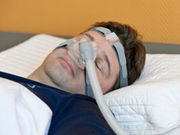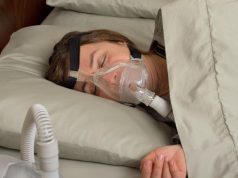Nightly breathing troubles may increase risk of heart attack, stroke following the coronary procedure
THURSDAY, June 16, 2016 (HealthDay News) — Sleep-disordered breathing (SDB) may increase the risk of serious complications in patients who have undergone percutaneous coronary intervention (PCI), according to research published online June 15 in the Journal of the American Heart Association.
The new study included 241 patients who underwent PCI. Their average age was 64 years, and the patients were followed for about six years. Of those patients, slightly more than half had SDB.
During the follow-up, the researchers found that 21.4 percent of patients with SDB had major cardiovascular events, including myocardial infarction, stroke, and congestive heart failure. In patients who didn’t have SDB, the cardiovascular complication rate was just 7.8 percent. Patients with SDB were also more likely to die during the follow-up.
“Our findings suggest that SDB is an important risk factor for stroke, heart failure, and more after PCI for acute coronary syndrome,” study author Toru Mazaki, M.D., chief physician in the department of cardiology at Kobe Central Hospital in Japan, said in a journal news release. “Doctors and patients should consider sleep studies post-PCI to rule out SDB or take necessary precautions to restore healthy breathing during sleep.”
Copyright © 2016 HealthDay. All rights reserved.








